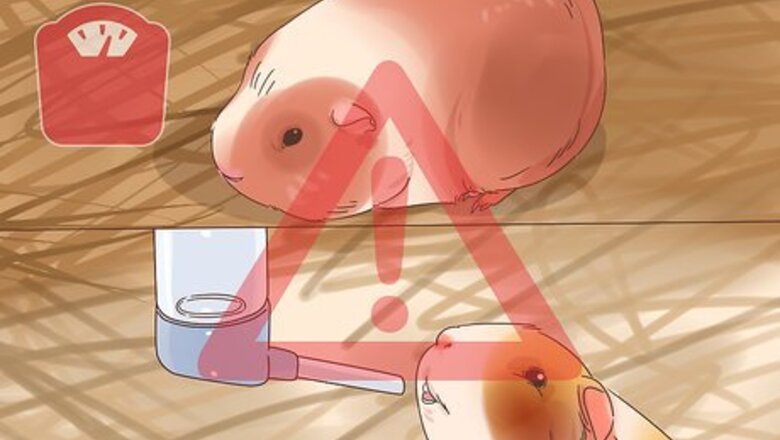
views
Diagnosing the Problem
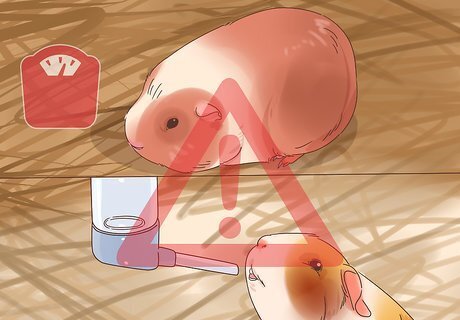
Look for a potential cause. There are several reasons a guinea pig may eat less or stop eating. Look at your guinea pig and its environment to see if any common causes may be prompting your guinea pig to eat less, and report them to your vet. Causes may include: Drastic changes in environmental temperature Water deprivation Loss of a cage mate An aggressive cage mate Oral lacerations Illness or metabolic disorders Obesity Change in food Pain or sores Stress
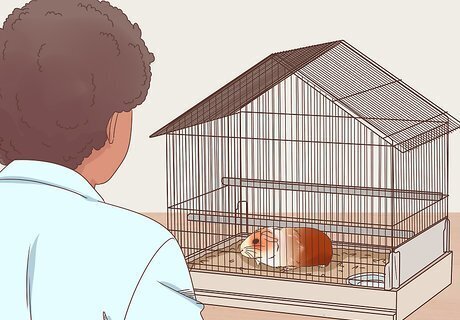
Monitor the guinea pig’s bathroom habits. Along with not eating, not urinating or pooping is a sign of a major dietary problem. Watch your guinea pig closely to see if it is using the bathroom regularly. If your guinea pig goes all day without excreting, call your vet immediately.
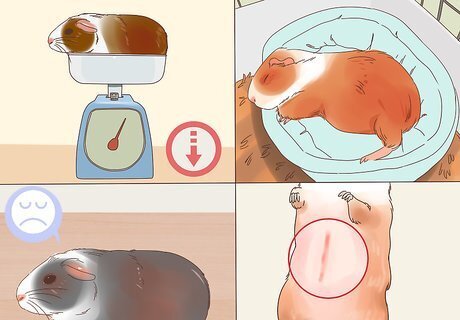
Look for additional symptoms. Not eating and bathroom habits are the biggest indicators of an anorexia problem, but other symptoms may also be present. Any symptom you notice should be reported to your guinea pig’s vet. Other common signs may include: Weight loss Lethargy Depression Loss of skin elasticity Rough or dry hair Recent surgery
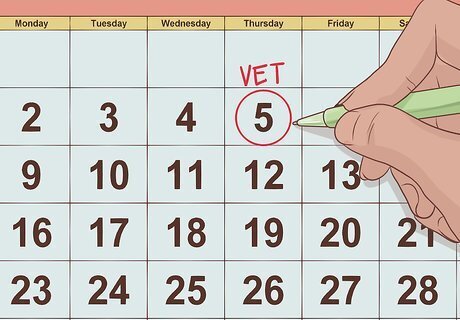
Make a vet appointment immediately. As soon as you notice any sign of anorexia in your guinea pig, you should contact your vet immediately. Let the vet know what signs and symptoms your pet is experiencing, and how long the problem has been going on. Guinea pigs can encounter life-threatening complications from not eating for as little as 24 hours. Therefore, prompt treatment is essential. Your vet may recommend several diagnostic procedures including radiographs, blood tests, and dental films, as well as tests for different potential diseases or infections. The vet may also give injections that stimulate the digestive tract and reduce gut discomfort. This will act as a first-aid measure to stop the guinea pig's bowel from shutting down permanently.
Managing Anorexia at Home
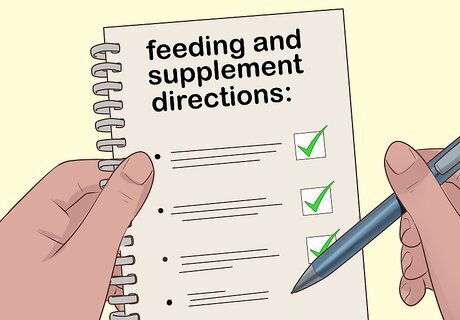
Follow your vet’s feeding and supplement directions. Treatment for anorexia will depend partially on the underlying cause. Your vet will be able to help you make dietary adjustments, recommend supplements, and prescribe medication as necessary. Follow the vet’s instructions as closely as possible. Since there are so many potential underlying causes for anorexia in guinea pigs, it is important not to try offering medication or supplements without your vet’s guidance. Your vet can help you find an appropriate solution for your guinea pig.
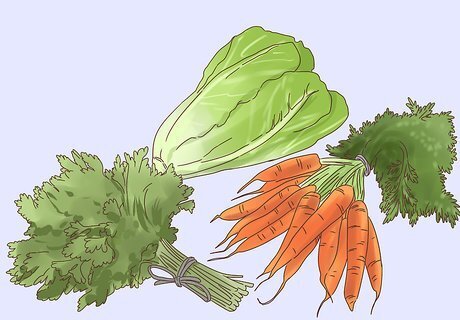
Tempt your guinea pig with leafy greens. In addition to following your vet’s care plan, you can try to tempt your fuzzy friend with small amounts of dark greens. These can include lettuce, cilantro, parsley, carrot tops, and other rich, moist greens. Make these available along with small amounts of fresh pellets, high-quality grass hay, and ample fresh water.
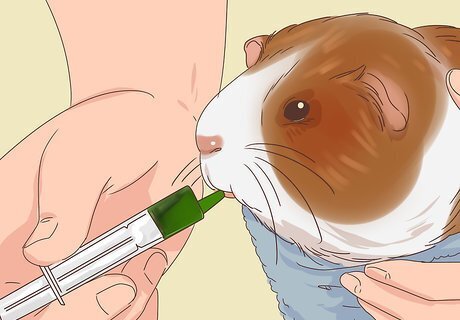
Feed your guinea pig by hand. Hand feeding should only be undertaken with instructions from your vet. They will provide you with a syringe and recommendations for the right type of food. Wrap your pig in a towel and set it on a hard surface. Then, work the tip of the syringe into their mouth. Once the syringe is completely in, slowly press down the plunger, breaking every few seconds to let them swallow. Generally, you will need to do four to six feeding sessions of 20 to 25 grams (0.71 to 0.88 oz) of slurry at a time.
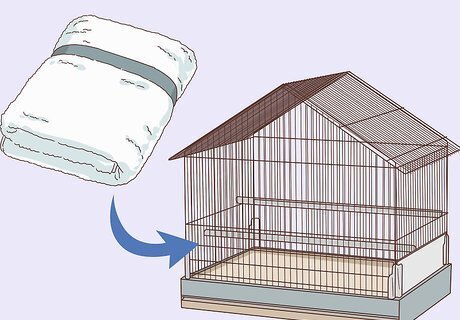
Replace their loose bedding with a towel. For sick guinea pigs, a towel is easier to walk on. It is also easier for you to see urine and droppings. Remember to change the towel every day, though, to avoid further illness or complications.
Preventing Future Problems
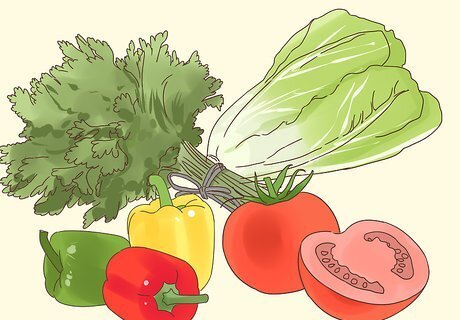
Provide plenty of fresh food. In addition to pellets, your guinea pig should be getting about a cup of fresh vegetables every day. Fresh veggies provide fiber and vitamin C for your guinea pig, both necessary for healthy dietary function. Some veggies that guinea pigs love include: Bell peppers Cilantro Dark green lettuces Tomatoes Dandelion greens Parsley Clover
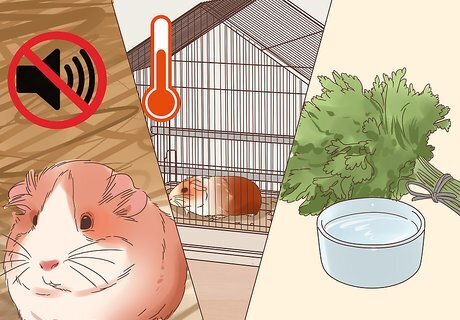
Maintain a calm, stress-free environment. Stress can have a major impact on a guinea pig’s appetite. Keep your guinea pig’s environment calm by: Keeping them away from loud noises Maintaining a consistent temperature Making sure they always have food and water Keeping them away from potential predators such as your cat or dog
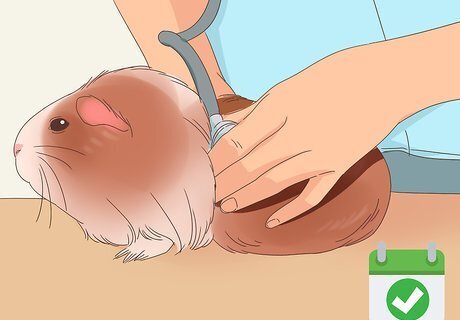
Get regular vet checks. The biggest causes of anorexia in guinea pigs are other illnesses and diseases. Preventative vet checks are the best means of early detection and treatment. Take your guinea pig to a vet for a general check-up at least once a year, and always call your vet if you notice your guinea pig is eating less or has stopped drinking.










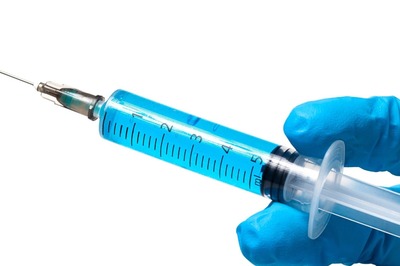






Comments
0 comment